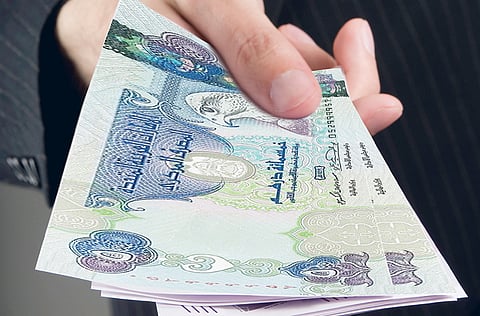More value for each dirham sent home
For people remitting their earnings back home, transparency in services offered by money transfer companies is not asking for too much

Remittances represent the rewards of their toil in foreign lands for some 700 million workers around the world. They are widely viewed as a major contributor to the economic growth of expatriates' home countries. World Bank figures show that in 2009, people across the globe transferred some $420 billion (Dh1.5 trillion), out of which $317 billion went to developing nations.
In the UAE, where expatriates constitute 80 per cent of the 6 million population, remittance transactions amount to 2.5 million every month. That's about 83,000 money transfers processed daily.
However, remittance is not just about transferring money from one country to another. When you move funds to a foreign destination, there is a basket of currencies and a number of variables that you take into account, such as the transaction fee, the exchange rate and the speed of service, among others.
It is vital then that you process the transfer only through a company that offers the best possible deal. So, if you want to make the most of your money, you shop around.
Unfortunately, despite the technological advancements, consumers do not have the appropriate tools yet to compare options in the market. Your best bet is to call up every major service provider or hop from one shop to another, to bag the best rates.
"This is an area where we need to improve a lot more because not all consumers are financially literate. I'm not talking about people in the UAE, but some consumers don't even know what an exchange rate is. For them, it's just a fee and they don't know how these conversions work," Massimo Cirasino, World Bank's head of Payment Systems Development Group, told Gulf News.
Need for databases
Cirasino admits there is little information available on the costs of remittance transfers in various markets. He says efforts are on to prod both sending and receiving countries to develop national databases that consumers can regularly tap into.
In the meantime, Cirasino advises consumers to log in at the World Bank website, which provides information on the cost of sending and receiving money.
The site covers 167 country corridors worldwide, including UAE, and provides a list of transfer fees, exchange rate margin and average total cost. The exchange rate margin is a measure of how good a deal the sender is getting on the exchange rate offered by a money transfer company.
The data posted on the website were collected by researchers posing as customers and contacting individual firms within each corridor. Materials were gathered within each corridor on the same day, since exchange rates fluctuate and fee structures can change any day.
Cirasino says the database seeks to increase transparency and competition, and provides comparison of markets across countries and regions. It also seeks to foster price reductions through a "name and shame" approach, and make the market as a whole more efficient. One company, for instance, dropped its transfer fees from 15 per cent to 5.6 per cent, following the publication of remittance fees from various operators.
"But this is still operating in an ad-hoc way. The site is not updated on a day-to-day basis, but twice a year. We're working towards increasing the frequency of updates. For now, at least, the website will give you a sense of the prices in the market," adds Cirasino.
The money transfer industry enables expatriates to send their salaries or part of their income to their families back home through banks and remittance service providers. The UAE is home to 110 exchange companies with over 550 branches.
Last year, remittance volume in the UAE dropped 10 to 15 per cent to Dh45 to Dh50 billion. "We're seeing a downtrend in Dubai, but transactions in Abu Dhabi are increasing. We don't expect a major growth this year. We expect to maintain the 2009 volume," Mohammad Al Ansari, chairman of Al Ansari Exchange, told Gulf News.
Al Ansari, however, points out that remittance volume in 2008 was "exceptional," citing that GCC remittances reached $40 billion, up by 31 per cent over 2007 ($30.3 billion). World Bank expects global remittances to be "almost flat" this year, but it foresees 4 per cent growth in 2011.



